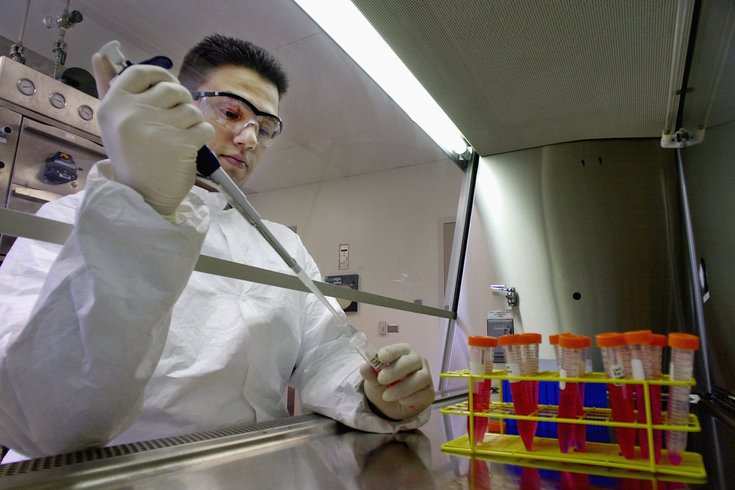
May 16, 2016
 Paul Sakuma, File/AP
Paul Sakuma, File/AP
Several firms developing so-called gene therapies are working on a new payment model that rewards them for the long-term performance of their medicines.
Biogen, the oldest biotechnology firm in the United States, announced Monday that it has formed a new alliance and collaboration with the University of Pennsylvania to advance gene therapy research and gene editing technologies.
The global firm specializes in developing treatments for neurodegenerative, hematologic and autoimmune diseases, but the new agreement, worth up to $2 billion for the University of Pennsylvania, will focus primarily on the development of targeted therapies for the eye, skeletal muscles and central nervous system.
The company will work with James Wilson, M.D, who directs Penn's Gene Therapy Program, and Jean Bennett, M.D., who leads Penn's Center for Advanced Retinal and Ocular Therapeutics. Wilson is Chief Scientific Advisor at Maryland-based Regenxbio, whose gene delivery platform, developed at Penn, uses adeno-associated viruses to transfer genes into human cells.
“We are committed to advancing gene therapy, and our collaboration with the University of Pennsylvania has significantly strengthened both our leadership and overall capabilities in the field,” said Olivier Danos, Ph.D., senior vice president, Cell & Gene Therapy at Biogen. “Joining forces with gene therapy pioneers, James Wilson and Jean Bennett, further enables Biogen to approach the technology from a powerful perspective. By exploring next-generation delivery in various tissues such as the retina, skeletal muscle and CNS, we will explore the potential for extending gene therapy beyond disorders linked to single gene mutations and into a broader spectrum of complex diseases, including devastating neurological conditions that affect a multitude of patients throughout the world.”
The research and development alliance will leverage Penn's gene therapy resources to support the discovery of new delivery vectors, pursue new manufacturing approaches and move toward commercialization of gene therapy products.
“My laboratory is committed to developing new technologies to address genetic diseases with few or no treatment options,” said Dr. Wilson. “This alliance is further evidence of Penn’s unflagging commitment towards enabling groundbreaking research and development in the cell and gene therapy field.”
Biogen will also use its expertise to move the collaborations into the clinic and toward approval.
"Recent advances in gene transfer and editing have now brought us to a promising stage and we believe that this exciting collaboration with Biogen will further fuel our collective ability to translate our research into viable gene therapies,” said Dr. Bennett.